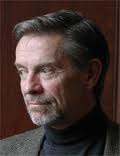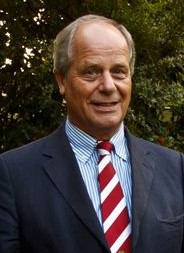Related Research Articles
The New Testament (NT) is the second division of the Christian biblical canon. It discusses the teachings and person of Jesus, as well as events relating to first-century Christianity. The New Testament's background, the first division of the Christian Bible, is called the Old Testament, which is based primarily upon the Hebrew Bible; together they are regarded as Sacred Scripture by Christians.

The Codex Sinaiticus, designated by siglum א [Aleph] or 01, δ 2, also called Sinai Bible, is a fourth-century Christian manuscript of a Greek Bible, containing the majority of the Greek Old Testament, including the deuterocanonical books, and the Greek New Testament, with both the Epistle of Barnabas and the Shepherd of Hermas included. It is written in uncial letters on parchment. It is one of the four great uncial codices. Along with Codex Alexandrinus and Codex Vaticanus, it is one of the earliest and most complete manuscripts of the Bible, and contains the oldest complete copy of the New Testament. It is a historical treasure, and using the study of comparative writing styles (palaeography), it has been dated to the mid-fourth century.

The Egerton Gospel refers to a collection of three papyrus fragments of a codex of a previously unknown gospel, found in Egypt and sold to the British Museum in 1934; the physical fragments are now dated to the very end of the 2nd century CE. Together they comprise one of the oldest surviving witnesses to any gospel, or any codex. The British Museum lost no time in publishing the text: acquired in the summer of 1934, it was in print in 1935. It is also called the Unknown Gospel, as no ancient source makes reference to it, in addition to being entirely unknown before its publication.

Anna, distinguished as Anna the Prophetess, is a woman mentioned in the Gospel of Luke. According to that Gospel, she was an elderly woman of the Tribe of Asher who prophesied about Jesus at the Temple of Jerusalem. She appears in Luke 2:36–38 during the presentation of Jesus at the Temple.

The Gospel of Marcion, called by its adherents the Gospel of the Lord, or more commonly the Gospel, was a text used by the mid-2nd-century Christian teacher Marcion of Sinope to the exclusion of the other gospels. The majority of scholars agree that this gospel was a later revised version of the Gospel of Luke, though several involved arguments for Marcion priority have been put forward in recent years.
Bruce Manning Metzger was an American biblical scholar, Bible translator and textual critic who was a longtime professor at Princeton Theological Seminary and Bible editor who served on the board of the American Bible Society and United Bible Societies. He was a scholar of Greek, New Testament, and New Testament textual criticism, and wrote prolifically on these subjects. Metzger was an influential New Testament scholar of the 20th century. He was elected to the American Philosophical Society in 1986.
John William Wenham was a conservative Anglican biblical scholar, who devoted his professional life to academic and pastoral work. Two of his four sons, Gordon Wenham and David Wenham, are also noted theologians.

Raymond Joseph Hoffmann is a historian whose work has focused on the early social and intellectual development of Christianity. His work includes an extensive study of the role and dating of Marcion in the history of the New Testament, as well the reconstruction and translation of the writings of early pagan opponents of Christianity: Celsus, Porphyry and Julian the Apostate. As a senior vice president for the Center for Inquiry, he chaired the Committee for the Scientific Examination of Religion, CSER, where he initiated the Jesus Project, a scholarly investigation into the historicity of Jesus. Hoffmann has described himself as "a religious skeptic with a soft spot for religion".

Codex Zacynthius (designated by siglum Ξ or 040 in the Gregory-Aland numbering; A1 in von Soden) is a Greek New Testament codex, dated paleographically to the 6th century. First thought to have been written in the 8th century, it is a palimpsest—the original (lower) text was washed off its vellum pages and overwritten in the 12th or 13th century. The upper text of the palimpsest contains weekday Gospel lessons (ℓ299); the lower text contains portions of the Gospel of Luke, deciphered by biblical scholar and palaeographer Tregelles in 1861. The lower text is of most interest to scholars.

Uncial 070, ε 6 (Soden), is a Greek-Coptic diglot uncial manuscript of the New Testament. Palaeographically it has been assigned to the 6th century.
Papyrus 7, or ε 11, designated by 𝔓7, is an early copy of the New Testament in Greek. It is a papyrus manuscript of the Gospel of Luke 4:1-2. Possibly it is a patristic fragment. The manuscript had been difficult to date palaeographically, because of its fragmentary condition. It had been assigned to the 4th–6th century.
David Charles Parker OBE was the Edward Cadbury Professor of Theology (2005-2017) and the Director of the Institute for Textual Scholarship and Electronic Editing at the Department of Theology and Religion, University of Birmingham. His interests include New Testament textual criticism and Greek and Latin palaeography.
Minuscule 242, δ 206 (Soden), is a Greek minuscule manuscript of the New Testament, on parchment. Palaeographically it has been assigned to the 12th century.
Merrill Chapin Tenney was an American professor of New Testament and Greek and author of several books. He was the general editor of the Zondervan Pictorial Bible Dictionary, and served on the original translation team for the New American Standard Bible.
Philip Maurice Casey was a British scholar of New Testament and early Christianity. He was an emeritus professor at the University of Nottingham, having served there as Professor of New Testament Languages and Literature at the Department of Theology.
The canon of the New Testament is the set of books many modern Christians regard as divinely inspired and constituting the New Testament of the Christian Bible. For most churches, the canon is an agreed-upon list of 27 books that includes the canonical Gospels, Acts, letters attributed to various apostles, and Revelation.
Stanley E. Porter is an American-Canadian academic and New Testament scholar, specializing in the Koine Greek grammar and linguistics of the New Testament.

Johannes (Hans) van Oort is a Dutch academic who is the Professor of Patristics and Gnostic Studies at Radboud University, Nijmegen, and at the University of Pretoria, South Africa. He is best known for his specialty in the study of St. Augustine, the gnostic world religion of Mani (Manicheism), and the Gospel of Judas. In 2006 van Oort presented, with the National Geographic Society, the discovery of this gnostic “gospel” to the Dutch speaking world.

Henk Jan de Jonge was an author and professor emeritus of New Testament at Leiden University. He wrote on the history of early Christian traditions and specialized in the history of New Testament scholarship in the early modern period.
References
- Official website of the International Greek New Testament Project with bibliographic links
- International Greek New Testament Project website for John
- ↑ http://www.igntp.org, 12 March 2017
- ↑ The American and British Committees of the International Greek New Testament Project (ed.), The New Testament in Greek, The Gospel According to St Luke, Part One. Chapters 1–12. Oxford University Press, 1984.